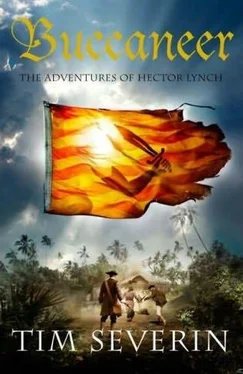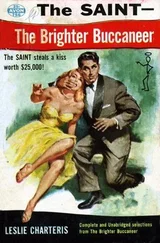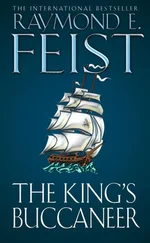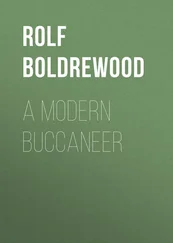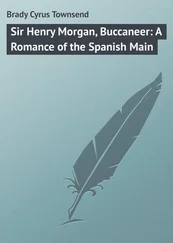'What's that for?' asked Hector, uncomfortably aware of the coils of the dead snake pressing against his back. The dead animal was remarkably heavy.
'A sovereign cure for the plague. Snake fragments steeped in a variety of herbs. Perhaps the Kuna will have their own recipe. Fiery Serpent one day, true viper another.' He gave a satisfied chuckle.
Next morning Smeeton was eager to track down a Kuna doctor and begin asking about native medicines. Leaving the expedition to trudge deeper into the cordillera, he and Hector were taken by one of the Kuna guides to a nearby village. Away from the hubbub and disturbance of the column, Hector could hear the sounds of the forest. There were the chattering and cooing of birds, the sudden clatter of wings and sometimes a glimpse of red and vivid green or bright blue and yellow as the birds flew to a safe distance, occasionally settling again on an overhanging branch like an exotic blossom. Close at hand came a succession of bold hooting sounds. Minutes later, a troop of black monkeys came swarming through the treetops. They were foraging for wild fruit and, to Hector's astonishment, deliberately pelted the travellers with the skins and stones left over from their meal. One self-confident male scampered until he was directly over them and purposefully urinated to show his disdain, the liquid pattering down on the forest floor.
The cane-and-thatch houses of the Kuna village were scattered across a spur of high ground, each house approached through its own plantain grove. The centre of the settlement was a longhouse as massive and lofty as the largest barn that Hector had ever seen. Like the other Kuna buildings, it had no upper floor, and its vast roof was held up on immensely thick wooden pillars. In the half-light of the windowless interior the two visitors were introduced to the village doctor. He and half a dozen village elders were waiting for them, reclining in hammocks suspended between the columns.
The village doctor had a lined, intelligent face with dark hooded eyes, and could have been anything between fifty and seventy years old. Luckily, he also spoke Spanish.
'How much time has your friend got?' he asked Hector when the young man explained that Smeeton was a surgeon and hoping to learn from the Kuna doctors.
'We must rejoin our companions later in the day,' said Hector.
The Kuna looked amused. 'For five years I was an assistant to my father. Next I was sent to study with one of my father's friends. I stayed with him for another twelve years. Only then could I begin to look after my patients.'
'My colleague just wants to learn about what plants can heal, and how to employ them. I can take notes and, if it is permitted, take away a few samples.'
The Kuna made a restraining gesture. 'Then he should talk with an ina duled. He is the one who prepares medicines. I am an igar wisid , a knower of chants. Medicine by itself does not cure. True health is to be found through the spirit world.'
Smeeton looked disappointed when Hector translated, and asked,'Perhaps the knower of chants has some patients at this time that I could see?'
The igar wisid swung down from his hammock. 'Come with me.'
He led his visitors a short distance out of the village to a small hut isolated in a clearing. The building seemed to be on fire, for a haze of smoke was seeping out through the thatch. The Kuna pushed open the low door and ducked inside. Hector stooped to follow him and found himself choking for breath. The interior of the hut was so thick with smoke that his eyes watered and he could scarcely see. A man lay motionless in a hammock strung across the small room. Beneath the hammock stood an array of dolls, dozens of them. Some were no more than six inches high; others three or four times that size. Nearly all were human figures. They were carved from wood, and some appeared to be very ancient for they had lost all shape and were stained black with age. The Kuna doctor crouched down and began rearranging them, crooning to himself. 'Ask what he is doing,' said Smeeton.
'These are nuchunga,' said the knower of chants. 'They represent the hidden spirits which always surround us. They can help restore the patient's soul. The patient is sick because his soul has been attacked. With my song lines I try to summon the assistance of the nuchunga.'
'Let's get out into the fresh air,' coughed the surgeon after some minutes of listening to the Kuna's chanting.
As they made their way back to the village with the igar wisid , Hector asked about the pale-skinned Kuna he had seen at the council meeting on Golden Island. Was he suffering from some sort of sickness?
For several paces, the igar wisid said nothing. When he spoke, he sounded reluctant to talk about the subject.
'He is one of the children of the moon. They are born among us, and never change their colour. Their skins remain white, and their hair stays pale. They are only happy in the darkness. Then they skip and sing. Their eyes can see in the dark, and they shun the light. It is our custom that they only marry among themselves.'
'He had many sores as well as bites from insects. Are you able to help such problems with your chants?' Asking the question, Hector felt a little ashamed. He was thinking not so much of Smeeton's researches, but his own torments from biting insects. He was hoping that the Kuna had something to treat the stings and pain.
'The great Mother and Father created these children of the moon and they will always be as they are. Chants would have no effect on their condition. Poultices made from forest plants offer a little relief to their suffering.'
They arrived back at the Kuna village and, out of courtesy to the village elders, spent some time in the longhouse, answering their questions. The Kuna wanted to know the number of buccaneers, where they were from, and what they intended. Hector had the impression that the Kuna were pleased to see anyone who would harry the Spaniards but suspicious that the foreigners might wish to stay. It was as Smeeton and Hector were leaving the village to rejoin their colleagues that the igar wisid quietly came up to Hector and placed a small packet in his hand. It was a leaf folded over and tied with a length of plant fibre. 'You asked about the poultices prepared for the children of the moon,' he said. 'I have been able to find this for you. It is some of the ointment used in those poultices and has been given to me by one of the children of the moon. I hope you will find it useful.'
'What does it contain?'
The Kuna gave an apologetic shrug. 'I know only that it contains the seed of a certain fruit whose name has no translation. The seed is hard and black, about the size of a child's fist, and the ina duled grinds it into powder which he then mixes into a paste with other herbs. The paste also cures ulcers and other sores of the skin.'
Hector unslung his knapsack and as he was stowing away the packet, Smeeton asked, 'What's that you've got there?'
'Some sort of skin ointment,' Hector explained.
'Let's hope it's effective. It's not much to show for our enquiries.'
But Hector did not reply. He was noticing that what he had thought was a small dark mound of dirt beside the path had uncoiled itself and was slithering off into the undergrowth.
EIGHT
White splinters of snapped branches, churned-up mud and scrapes where the moss had been knocked off rocks told them when they had rejoined the main trail. Shortly afterwards they met a buccaneer returning back down the path. He was soaked with sweat and in a bad temper. 'Shit-awful country,' he growled, eyeing them morosely. 'I've had enough of clambering through this stinking forest. I'm going back to the boats.'
'How far ahead is the column?' Smeeton asked.
'Over the next crest,' came the surly answer. 'A company of idiots, if you ask me. Some of them are cracking open the rocks and searching for gold. If anything glitters or sparkles they think they've discovered the mother lode.' He gave a derisive snort. 'Fool's gold, more likely.' He took off his hat and wiped the sweat from the browband before heading on towards the sea.
Читать дальше
